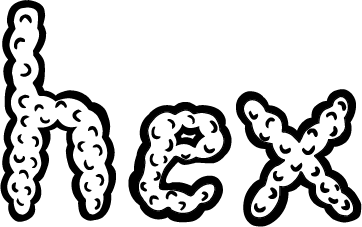The cat stretched in the sunlight and talked to us, eyes narrowed, while Marco demonstrated the library machines. He was about to explain the continuous loop system of the paternoster, curtain, or “waterfall” bookshelf. She wants the window open, he said. But it’s a little too chilly. He ran a finger along the top of the cat’s head as it stood to touch his shoulder. It’s chilly, even if it’s bright out, he told the cat, who stuck its nose in his ear as he leaned down. You think it’s warm, because the sun warms you up when it comes through the glass?
It wants to smell the bird, I said.
Oh, you see the cardinal, of course—you’d like to smell the cardinal. But if I open the window we’ll get cold, so no window, all right? No window. It moaned and pulled at his sleeve, then lowered its head to nip at the loose ring on his finger. Marco kept talking, unperturbed, even when it slipped a tooth under the band and turned it slightly. After the initial touch, he said, the carousel moves on its own. No need to keep pushing. The chain drive runs in a continuous vertical loop down through the slot in the floor, pivoting the shelves on their axes so the books stay upright. Then it ascends on the other side, all the way back to the storage area above. And it stops, you see, when you put a hand on the shelf you’re perusing?
Yes, I see.
Just a matter of counterbalance. The only tricky bit is the pivot. Only takes a few seconds, but if books fall, they jam. And that’s why there are these adhesive bands along the edges of each shelf, you see, to keep the books in place at the moment of inversion… But it’s also why a library operator needs to be on hand when the bookshelf’s in use, because if it was totally automated… Do you see what I mean?
Yes.
The danger books—those of unusual size—would have to be manually extracted if dislodged. Nor would AI know when to replace the adhesive band—that is, when the stickiness degrades. That’s why it’s not yet possible to bring the library staff down to zero, besides which, we don’t want the cat to pinch her claws in the mechanism.
The cat could be removed, I said. Marco sighed and halted the paternoster shelf with a touch of his unoccupied hand (the other was still in the cat’s grip). He is very sentimental about libraries, I thought. Anyway, he continued, it could operate on its own, but you’d see more wear and tear to the books, potential for accidents, serious accidents that could jam the gears.
Another machine could be introduced, I said, namely one with a delicate finger prosthetic that could feel along the adhesive band to test its stickiness. An inspection hand, let’s say, mounted near the floor slot, that could steady jostled books if necessary, or extend deep into the works to retrieve those that have fallen.
Mm, said Marco, but what if the cat tried to catch the finger when it tested the adhesive band? What if she stuck her paw in the adhesive, or at least coated the band in fur over time?
I didn’t want to indicate twice in a row that the cat, not the machine, complicated matters, especially as he had again lowered his ear to its mouth as it rolled about on the desk. It immediately reinserted its nose into his ear like a bumblebee entering a tulip.
A machine cat could distract it, I said, so long as the prosthetic finger of the inspection hand is sensitive enough to detect interference from the live cat. A signal from the finger would activate a basic voice box installed higher in the arm, to which the machine cat could respond with a realistic cat-like noise to divert the live cat’s attention from the operations of the inspection hand.
That’s a lot of noise for a library, Marco said. He stroked the cat’s neck and shoulders as it clung to the lapel of his jacket and sniffed loudly in his ear.
Then some sacrifice has to be made, I said.
With another sigh, he touched the bookshelf to resume its rotation and turned to open the window. The cat stretched and lifted its face to smell the breeze. Awoken by the movement, a small machine, caught all winter between the glass and the screen, shifted its head and climbed downward toward the sill.
__________
Addison Zeller lives in Wooster, Ohio, and edits fiction for The Dodge. He has contributed to many publications, including 3:AM Magazine, Epiphany, The Cincinnati Review, Vol. 1 Brooklyn, and minor literature[s].
